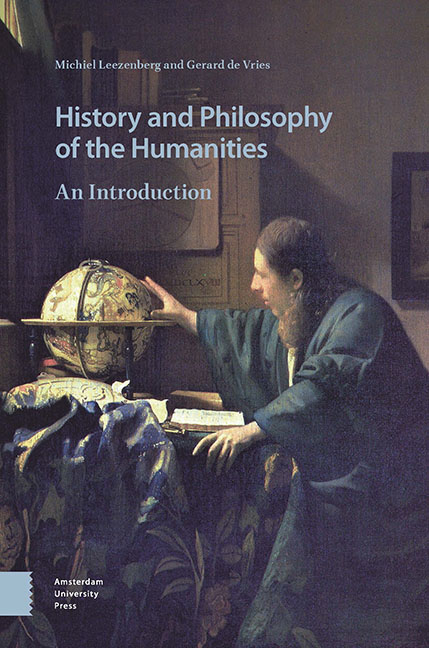Preface
Summary
Philosophy of science textbooks tend to restrict their attention to the natural sciences, which allegedly represent what ‘real science’ is. In some other cases, the epistemological and methodological problems of the social sciences are dealt with as well. Textbooks that cater to the needs of students in the humanities, however, are few and far between. The present book aims to fill this lacuna. It provides humanities students with the necessary means to reflect on the character of their field of study as well as on the place of the humanities in the world of science at large and their position in contemporary society and culture.
This book neither propagates a particular view on, or approach to, the humanities nor gives advice about how to conduct research. Rather, it discusses the development of the Western humanities and the diverging views that exist with regard to their tasks, character, and methods. These views – and with them the very distinction between the natural sciences, the social sciences, and the humanities – have taken different shapes in the course of history. By not only discussing general epistemological and discipline-specific methodological questions but also paying ample attention to the historical developments that have contributed to the development of the humanities, this book hopes to be of interest to scholars in the humanities (both current and future) as well as readers primarily interested in the natural and social sciences.
The book consists of four parts. In Part One, we discuss humanism, the scientific revolution, and a number of standard views on science, including logical empiricism and critical rationalism. Several epistemological notions that are relevant for understanding the humanities are introduced, including Kant's version of the subject-object scheme, the implications of the Duhem-Quine thesis, and the rejection of the so-called myth of the given. Finally, we discuss the historicization of the philosophical view of the sciences that occurred in the 1960s.
In Part Two, we discuss the emergence of the modern humanities.
- Type
- Chapter
- Information
- History and Philosophy of the HumanitiesAn Introduction, pp. 11 - 14Publisher: Amsterdam University PressPrint publication year: 2019

